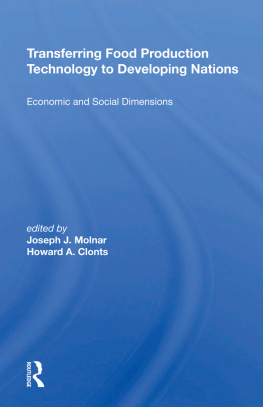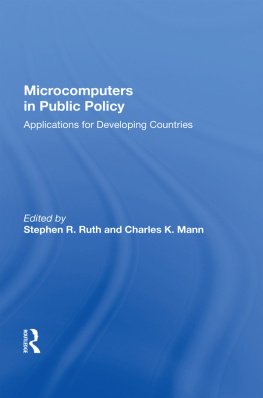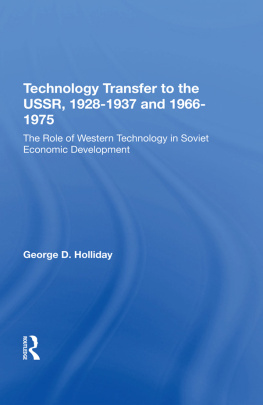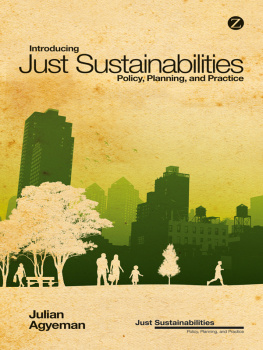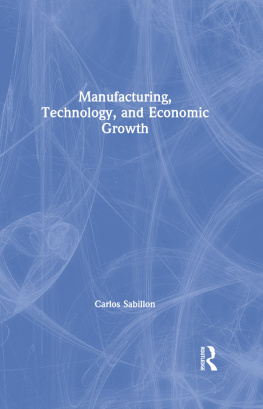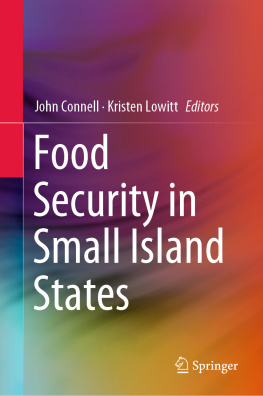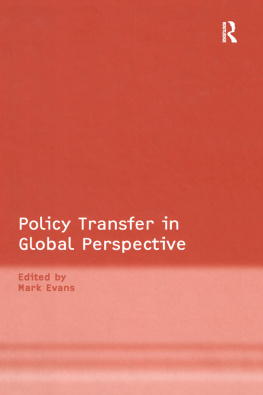Transferring Food Production Technology to Developing Nations
Westview Replica Editions
The concept of Westview Replica Editions is a response to the continuing crisis in academic and informational publishing. Library budgets for books have been severely curtailed. Ever larger portions of general library budgets are being diverted from the purchase of books and used for data banks, computers, micromedia, and other methods of information retrieval. Interlibrary loan structures further reduce the edition sizes required to satisfy the needs of the scholarly community. Economic pressures on the university presses and the few private scholarly publishing companies have severely limited the capacity of the industry to properly serve the academic and research communities. As a result, many manuscripts dealing with important subjects, often representing the highest level of scholarship, are no longer economically viable publishing projects--or, if accepted for publication, are typically subject to lead times ranging from one to three years.
Westview Replica Editions are our practical solution to the problem. We accept a manuscript in camera-ready form, typed according to our specifications, and move it immediately into the production process. As always, the selection criteria include the importance of the subject, the work's contribution to scholarship, and its insight, originality of thought, and excellence of exposition. The responsibility for editing and proofreading lies with the author or sponsoring institution. We prepare chapter headings and display pages, file for copyright, and obtain Library of Congress Cataloging in Publication Data. A detailed manual contains simple instructions for preparing the final typescript, and our editorial staff is always available to answer questions.
The end result is a book printed on acid-free paper and bound in sturdy library-quality soft covers. We manufacture these books ourselves using equipment that does not require a lengthy make-ready process and that allows us to publish first editions of 300 to 600 copies and to reprint even smaller quantities as needed. Thus, we can produce Replica Editions quickly and can keep even very specialized books in print as long as there is a demand for them.
About the Book and Editors
Transferring Food Production Technology to Developing Nations:
Economic and Social Dimensions
edited by Joseph J. Molnar and Howard A. Clonts
This book explores the social, economic, and policy problems associated with introducing new agriculture and aquaculture technology to developing nations as a means for expanding food supplies and increasing well-being. The contributors examine three general facets of planning for technology transfer and consider methodologies that enable effective integration of social and economic factors. The first section of the book covers problems of planning at the national and regional level, emphasizing methods and models for macro planning under conditions when resources are limited. Two subsequent sections, focusing on planning at the local level and on constraints on the technology transfer process, cover a broad range of topics, among them production and marketing decisions by small farmers, conflicting objectives of planners and producers, limitations of resource allocation within the production unit, and strategies for training extension workers, researchers, and project planners.
Joseph J. Molnar is associate professor of rural sociology at Auburn University. Associated with the International Center for Aquaculture, he teaches courses in extension methods, research methods, and the sociology of natural resources and the environment. Howard A. Clonts, professor of resource economics at Auburn University, serves as departmental liaison to the International Center for Aquaculture. His research and teaching areas include aquacultural economics, project planning and evaluation, water resource management, resource economics, and resource policy.
Transferring Food Production Technology to Developing Nations
Economic and Social Dimensions
edited by Joseph J. Molnar and Howard A. Clonts
First published 1983 by Westview Press
Published 2018 by Routledge
52 Vanderbilt Avenue, New York, NY 10017
2 Park Square, Milton Park, Abingdon, Oxon OX14 4RN
Routledge is an imprint of the Taylor & Francis Group, an informa business
Copyright 1983 by Taylor & Francis
All rights reserved. No part of this book may be reprinted or reproduced or utilised in any form or by any electronic, mechanical, or other means, now known or hereafter invented, including photocopying and recording, or in any information storage or retrieval system, without permission in writing from the publishers.
Notice:
Product or corporate names may be trademarks or registered trademarks, and are used only for identification and explanation without intent to infringe.
Library of Congress Catalog Card Number: 83-50067
ISBN 13: 978-0-367-21223-0 (hbk)
Contents
- PART I
AGRICULTURAL DEVELOPMENT AND TECHNOLOGY TRANSFER - PART II
MACRO-LEVEL PLANNING IN DEVELOPMENT - PART III
MICRO-LEVEL PLANNING IN DEVELOPMENT - PART IV
SOCIAL AND INSTITUTIONAL CONSIDERATIONS
- PART I
AGRICULTURAL DEVELOPMENT AND TECHNOLOGY TRANSFER - PART II
MACRO-LEVEL PLANNING IN DEVELOPMENT - PART III
MICRO-LEVEL PLANNING IN DEVELOPMENT - PART IV
SOCIAL AND INSTITUTIONAL CONSIDERATIONS
Guide
While we bear primary responsibility for assembling the authors who contributed to this volume and for its editing, the results are truly the effort of a much larger group of individuals. An initial grant from the Dean of General Extension, Dr. Gene Bramlett, enabled the project to get underway. Generous support from the Southeast Consortium for International Development allowed a number of scholars, who would have been unable to attend otherwise, to travel and participate in the conference.
Several far-sighted administrators fostered and encouraged the endeavor. Dr. Stanley P. Wilson, Vice President for Agriculture, Home Economics, and Veterinary Medicine and Dr. Gale A. Buchanan, Dean and Director, Alabama Agricultural Experiment Station, were especially supportive of efforts to increase the on-campus supply of social science expertise for the International Center for Aquaculture (ICA). Dr. Wayne Shell of the Department of Fisheries and Allied Aquacultures and Dr. Joseph H. Yeager of the Department of Agricultural Economics and Rural Sociology were particularly effective in managing the continuously complex administrative matters associated with interdepartmental involvement in the ICA. As Associate Director of the ICA, Dr. Donovan Moss was encouraging and helpful throughout the process.
We are particularly indebted to John B. Flynn, who took on important responsibilities in the early planning and organizational phase of the conference. Now having resumed a foreign service career, Auburn's loss is USAID's gain.
ICA staff members made significant contributions to the effort that resulted in this volume. We thank professors Rudy Schmittou, John Grover, Brian Duncan, and David Rouse, as well as Ron Phelps and David Hughes, for their active support and enthusiasm. We also thank John Dunkelberger and others who commented on our manuscript.

